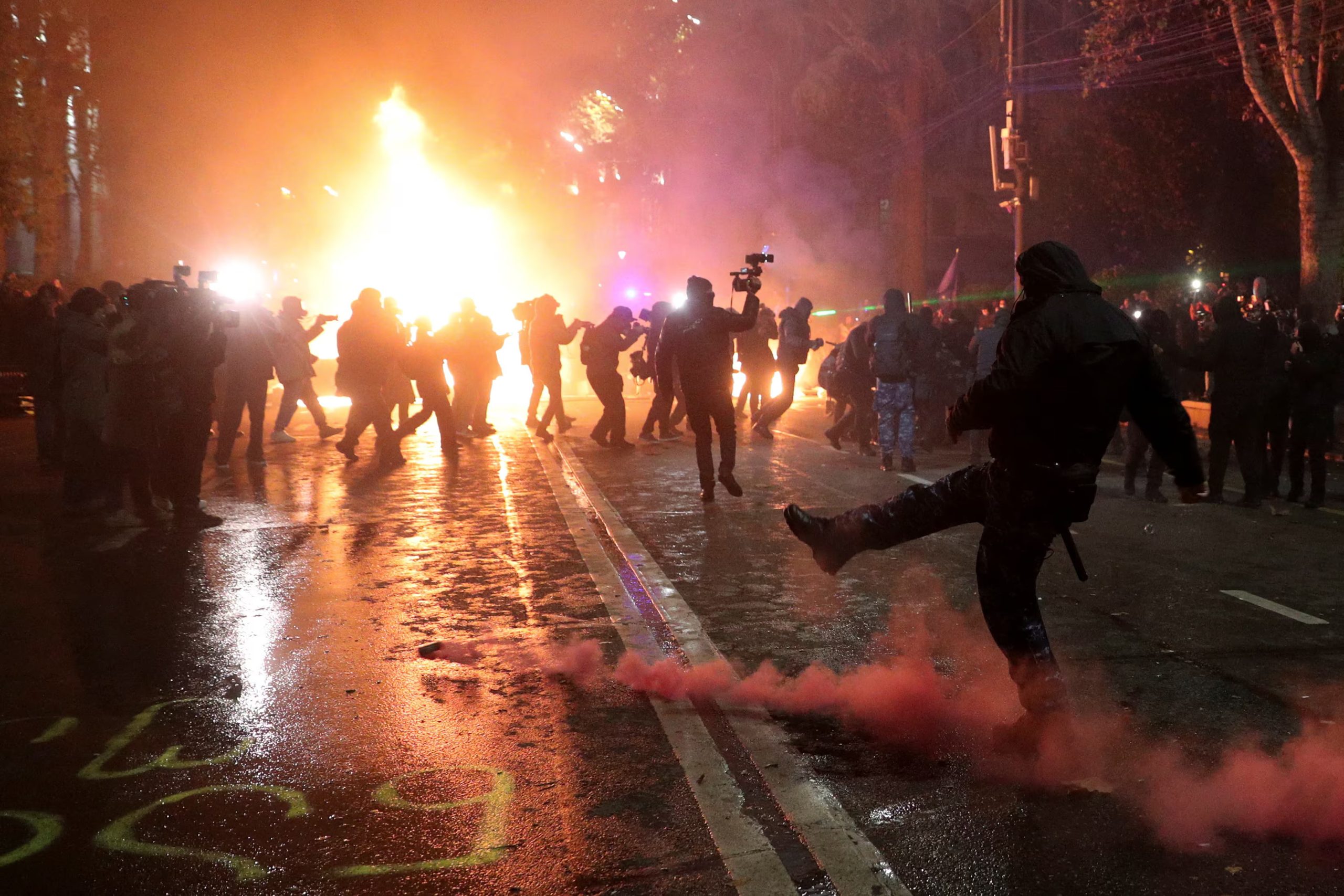The political crisis in Georgia has escalated as protesters in Tbilisi and other cities continue to rally against the government’s decision to suspend talks on joining the European Union (EU). This move has sparked widespread anger, reflecting broader dissatisfaction with the ruling Georgian Dream party, which opponents accuse of adopting authoritarian, anti-Western, and pro-Russian policies.
Tensions have been mounting since Thursday when the suspension was announced, with large-scale protests leading to confrontations with police, who have used tear gas and water cannons to disperse demonstrators.
Protests are spreading beyond the capital, with demonstrators blocking major roads, including access to the port city of Poti, and staging acts of defiance such as tearing down ruling party flags in smaller towns like Khashuri.
The decision to pause EU accession talks has alarmed Western allies, who view it as a reversal of Georgia’s pro-European trajectory. Opposition to the government is also manifesting in other forms, with reports of resignations among diplomats and public servants in protest of the EU suspension, highlighting internal divisions within the country.

Georgia’s Halted EU Talks Ignite Nationwide Protests and Concerns Over Democratic Erosion
The Georgian government, led by Prime Minister Irakli Kobakhidze, has dismissed international criticism and accusations of excessive force against protesters, framing the unrest as being fueled by foreign interference.
Kobakhidze has attempted to justify the suspension as a defense of national sovereignty while dismissing Western sanctions and pledging to negotiate with the incoming U.S. administration. Meanwhile, President Salome Zourabichvili has refused to vacate her office, citing the illegitimacy of recent parliamentary elections and further intensifying the political standoff.
Amid this unrest, the government’s controversial policies, such as its NGO “foreign agents” law and restrictions on LGBT rights, have raised concerns about democratic backsliding. Critics argue these measures, along with the suspension of EU talks, signify a shift toward authoritarianism and a move closer to Russia’s sphere of influence. Russia, while closely monitoring the situation, has characterized the protests as an attempt at revolution reminiscent of Ukraine, warning of potential instability.
The EU has expressed strong solidarity with the Georgian protesters, emphasizing the need for the country to remain committed to its pro-European path. EU foreign policy chief Kaja Kallas condemned the violence against demonstrators and warned that Georgia’s failure to adhere to democratic values and its pivot away from the EU would have significant repercussions.
As protests continue and tensions rise, Georgia faces a deepening political and constitutional crisis, with implications for its democratic future and international relations.
